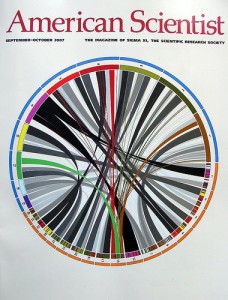 Only 49 percent, less than half of Americans know that human emissions are the cause of global warming. In a time when several countries have already started the race to lead and profit from a new alternative energy system, this statistic means only one thing for America: We are falling behind.
Only 49 percent, less than half of Americans know that human emissions are the cause of global warming. In a time when several countries have already started the race to lead and profit from a new alternative energy system, this statistic means only one thing for America: We are falling behind.
Yes, America’s government has finally begun to acknowledge the importance on creating new climate and energy legislation, but we are still miles behind countries like China, South Korea, and Japan. Lets compare: China is investing 440 billion- 660 billion in its clean energy industry over the next 10 years. Under the Waxman- Markey Bill, The U.S. will only invest about 1.2 billion annually in research and development, and 10 billion in the clean energy sector as a whole. That is less than .1 percent of U.S. GDP. Meanwhile, South Korea is investing 20 times that percentage of their GDP in a Green New Deal.
Not only is the U.S. falling behind in energy investments, but the nation is also becoming increasingly scientifically illiterate. According to the National Academies, only 15 percent of the undergraduate degrees earned in the U.S. are in science and engineering, while in China, the percentile is 50!
There have been attempts to better scientifically educate America’s youth. The National Science Foundation’s IGERT program – Integrative Graduate Education and Research Traineeship – aims to install a broader set of skills to young scientists such as economic thinking, policy realities, and the nature of the modern media. The program attempts to better connect Americans to scientific ideas, and create a better relationship between scientists and the public. President Obama made an attempt to implement another program, RE-ENERGYSE, which was designed to inspire young Americans to pursue careers in clean energy. The program would’ve funded new undergraduate and graduate energy curriculum and research opportunities and aimed to prepare up to 8,500 highly educated young scientists and engineers to enter the field of clean-energy in six years time. However the U.S. Senate and House have recently rejected the proposal.
America must do something about its scientific illiteracy – ASAP! With the “The Asian Energy Challenge” looming before us, America cannot afford to toe the starting line much longer.

While the idea that scientists could be more engaging and advocate better is neither wholly without merit, or even new, it seems a bit like “blaming the victim,” and wishful thinking. The type of advocacy that seems to be called for isn’t really part of the scientific ethos, although there are some scientists who manage rather well nevertheless e.g; David Suzuki or Bill Nye. Furthermore, the author seems to believe that simply changing the form of the information is enough to make the “empty vessels,” more receptive. While it may help, it’s certainly not enough. Were that the case one would think that “NOVA: Science Now” or “Mythbusters” and the like would be much more popular.
For some additional highlights and perspective on the report see these highlights.